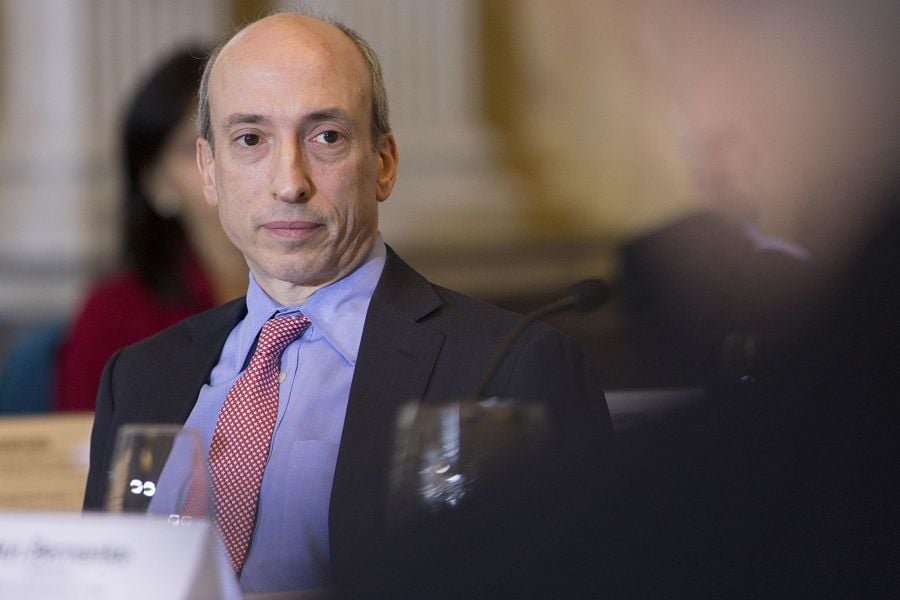

Gary Gensler, the chair of the Securities and Exchange Commission, said on Wednesday that he asked the agency’s staff to examine issues related to stock trading, including so-called best execution requirements. He also said that the stock-trade settlement process could be shortened to the same day.
Market trading rules have come under scrutiny amid wild swings in meme stocks such as GameStop Corp. and AMC Entertainment Holdings Inc. While Gensler didn’t mention them by name, he directed some of his most pointed comments to market makers like Citadel Securities and Virtu Financial Inc. Those firms pay retail brokers a fee to execute clients’ trade orders.
“Brokers profit when investors trade,” Gensler said in a speech at the Piper Sandler Global Exchange & FinTech Conference. “For those brokers who have these arrangements -- and not all do -- higher trading volume generates more payment for order flow. What makes the current zero-commission brokerage environment different is that investors do not see their costs as they’re executing trades, so they may perceive them as free.”
Virtu fell as much as 8.4% in New York trading. Interactive Brokers Group Inc. and Charles Schwab Corp. also declined.
Gensler, who took over the agency in April, has said previously that there are inherent conflicts tied to payment for order flow and that the SEC was looking closely at whether it needs to revamp regulations.
On Wednesday, Gensler said that he’d directed the SEC staff to focus on whether retail investors are indeed getting the best deal for their trades. He raised issues around so-called best-execution requirements that brokers must comply with when handling trades.
Gensler also questioned whether a national price reference known as the NBBO, which is used to determine whether brokers are meeting their best execution requirements, was an accurate benchmark for the market. He said that it might not be because a significant portion of trading is executed by wholesale brokerages and not on traditional platforms like the New York Stock Exchange.
During an interview on CNBC following the event, Gensler went further. He questioned the brokerage industry’s argument that payment-for-order-flow arrangements have allowed retail investors to trade stocks for free.
“I think that’s a misperception -- it’s not free trading,” Gensler said. “It is zero commission, but not necessarily free,” he added, noting that the data brokerages gain are valuable.

By listening for what truly matters and where clients want to make a difference, advisors can avoid politics and help build more personal strategies.

JPMorgan and RBC have also welcomed ex-UBS advisors in Texas, while Steward Partners and SpirePoint make new additions in the Sun Belt.

Counsel representing Lisa Cook argued the president's pattern of publicly blasting the Fed calls the foundation for her firing into question.

The two firms violated the Advisers Act and Reg BI by making misleading statements and failing to disclose conflicts to retail and retirement plan investors, according to the regulator.

Elsewhere, two breakaway teams from Morgan Stanley and Merrill unite to form a $2 billion RIA, while a Texas-based independent merges with a Bay Area advisory practice.
Orion's Tom Wilson on delivering coordinated, high-touch service in a world where returns alone no longer set you apart.
Barely a decade old, registered index-linked annuities have quickly surged in popularity, thanks to their unique blend of protection and growth potential—an appealing option for investors looking to chart a steadier course through today's choppy market waters, says Myles Lambert, Brighthouse Financial.
